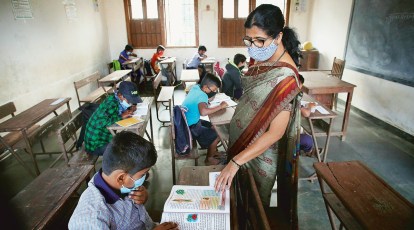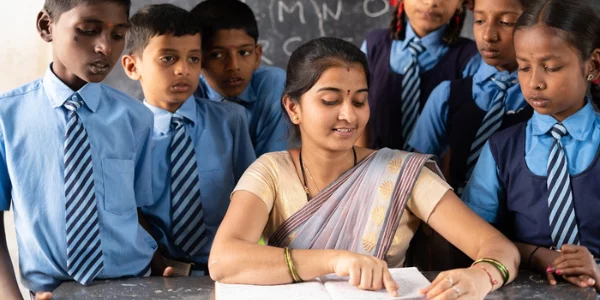
Introduction
Secondary education, a crucial phase in a student’s academic journey, plays a pivotal role in shaping future trajectories. In this article, we’ll delve into the historical evolution, purpose, challenges, and innovations surrounding secondary education.
Historical Evolution
Origins of Secondary Education
The roots of secondary education trace back to ancient civilizations, where specialized tutors imparted advanced knowledge to select individuals. Over time, this evolved into formal structures during the Middle Ages.
Key Developments Over the Years
From the establishment of the first high schools to the introduction of standardized curricula, secondary education has witnessed significant milestones. These developments have mirrored societal changes and educational philosophies.
Purpose and Goals
Academic Preparation
One of the primary aims of secondary education is to academically prepare students for higher learning. Rigorous coursework and examinations lay the foundation for specialized fields of study.
Social and Personal Development
Beyond academics, secondary education fosters social and personal development. Students learn crucial life skills, develop interpersonal relationships, and explore their interests through extracurricular activities.
Structure and Curriculum
Core Subjects
Secondary education typically includes a set of core subjects, providing a broad knowledge base. Mathematics, science, literature, and social studies form the backbone of the curriculum.
Electives and Specializations
To cater to diverse interests, secondary education offers elective courses and specializations. This allows students to tailor their education to align with their passions and career aspirations.
Challenges in Secondary Education
Access and Equality
Despite strides in education, access to quality secondary education remains unequal. Socioeconomic factors often determine educational opportunities, posing a challenge to achieving universal education.
Adapting to Technological Changes
The rapid pace of technological advancement presents a constant challenge. Integrating technology into education is crucial, but not all schools have the resources or expertise to keep up.
Role of Teachers
Importance of Secondary Educators
Teachers in secondary education play a pivotal role in guiding students. Their influence extends beyond the classroom, shaping students’ attitudes, values, and aspirations.
Teaching Methodologies
Innovative teaching methodologies, such as project-based learning and interactive classrooms, contribute to a dynamic and engaging secondary education experience.
Global Perspectives
Contrasts in Secondary Education Worldwide
Secondary education varies widely across countries, reflecting cultural, economic, and political differences. Understanding these global perspectives is essential for fostering a comprehensive view of education.
Common Trends and Innovations
Despite differences, certain trends, such as the emphasis on STEM (science, technology, engineering, and mathematics) education, resonate globally. Innovations like online learning platforms are also becoming increasingly prevalent.
Impact on Higher Education
Link between Secondary and Higher Education
Secondary education serves as a bridge to higher education, equipping students with the knowledge and skills necessary for specialized studies. The choices made during this phase significantly influence future academic and career paths.
Preparing Students for Future Careers
Beyond academics, secondary education plays a vital role in preparing students for the demands of the workforce. Skills like critical thinking, communication, and problem-solving are honed during these formative years.
Innovations in Secondary Education
Technology Integration
Incorporating technology into the classroom enhances learning experiences. Virtual labs, online resources, and interactive simulations provide students with a more dynamic and personalized education.
Project-Based Learning
Moving away from traditional rote learning, project-based learning immerses students in real-world scenarios. This hands-on approach fosters creativity, collaboration, and a deeper understanding of concepts.
Parental Involvement
Importance of Parental Support
Parental involvement is integral to a student’s success in secondary education. Supportive parents create a conducive environment for learning and play a crucial role in shaping a child’s attitude towards education.
Balancing Act Between School and Home
Finding the right balance between academic pressures and a healthy home life is essential. Open communication between parents and educators ensures that students receive the support they need.
Success Stories
Notable Individuals Who Excelled After Secondary Education
From Nobel laureates to successful entrepreneurs, many accomplished individuals credit their secondary education for laying the foundation for their achievements.
Inspiring Stories from Diverse Backgrounds
Highlighting success stories from diverse backgrounds emphasizes the transformative power of secondary education. These stories inspire students to overcome challenges and pursue their dreams.
Addressing Mental Health
Recognizing and Addressing Mental Health Challenges
The pressures of secondary education can impact students’ mental health. Creating awareness and implementing support systems within schools are crucial steps in addressing this issue.
Creating Supportive Environments
Fostering a supportive and inclusive environment is essential for students’ well-being. Schools must prioritize mental health initiatives, providing resources and counseling services.
Preparing for the Future
Evolving Nature of Jobs
As the job market evolves, secondary education must adapt to equip students with relevant skills. A forward-looking curriculum anticipates the needs of emerging industries.
Skills Required in the 21st Century
Critical thinking, adaptability, and digital literacy are among the essential skills for success in the 21st century. Secondary education must focus on nurturing these skills to prepare students for a rapidly changing world.


